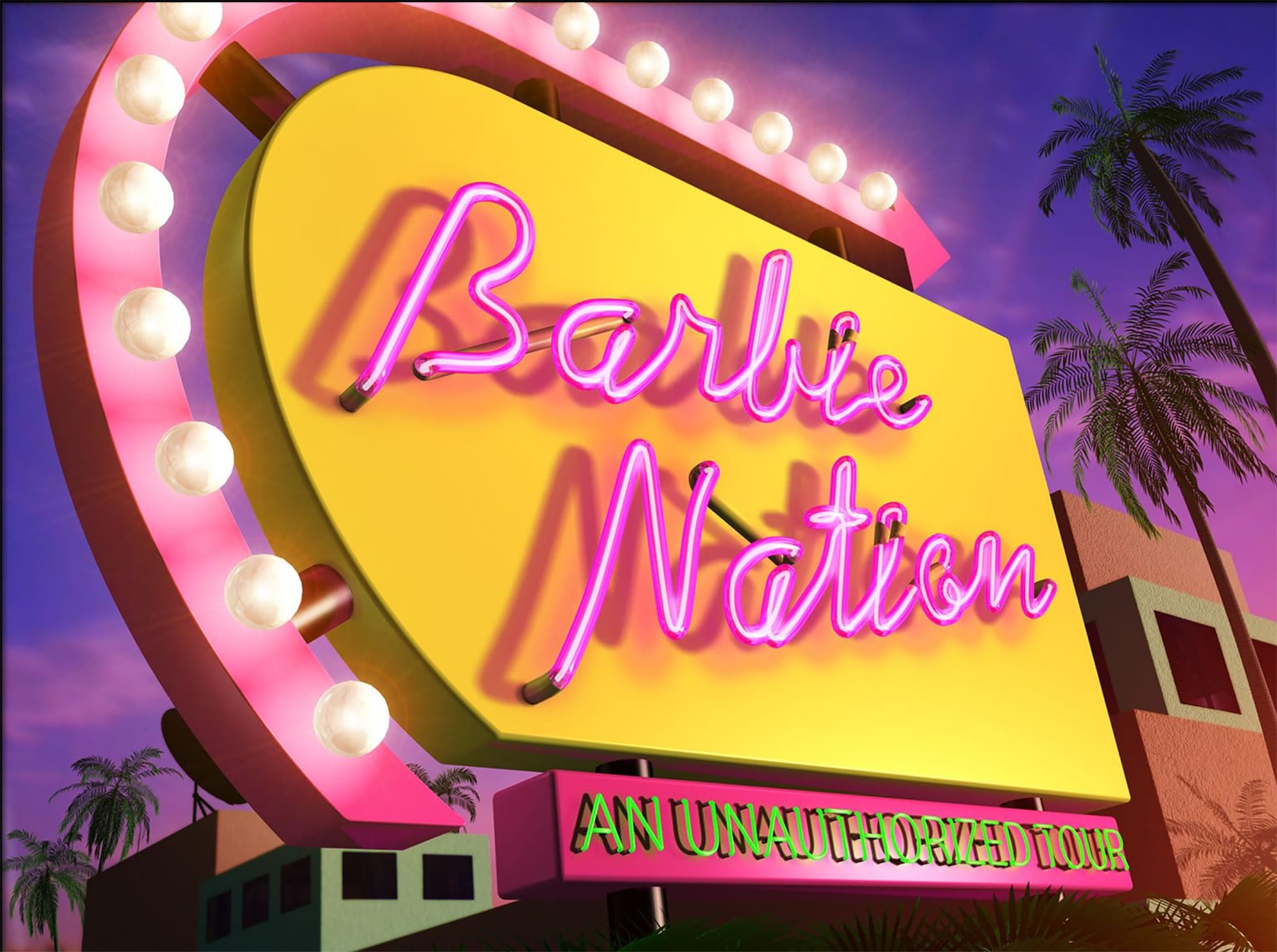
- Film
The Other Barbie Movie: 25th Anniversary of Documentary, “Barbie Nation: An Unauthorized Tour”
Before there was Greta Gerwig’s upcoming film, Barbie – starring Margot Robbie and Ryan Gosling – there was Barbie Nation: An Unauthorized Tour, the cult classic documentary directed by journalist Susan Stern. To mark the 25th anniversary of that iconic film, an enhanced Director’s Cut will make its online debut on June 27. The film explores the peculiar ways in which people have embraced Barbie since her introduction to the toy market in 1959, as well as the history of the doll’s own saucy rise from a German sex toy to the savior of Mattel. We spoke to Susan Stern on Zoom about her iconic documentary that includes interviews with Mattel co-founder Ruth Handler and drag queen RuPaul.
What inspired you to make a documentary about Barbie?
I was home with my four-year-old daughter who liked playing Barbies and she started playing this game where my Barbie was jealous of her Barbie. In my best feminist manner, I said, ‘Nora, women don’t have to be jealous of other women.’ She just looked at me and said, ‘mom, first we’ll play what I want to play and then we can play what you want to play!’ I went around telling everyone what I thought was a great story and then everyone told me their Barbie doll story. My friend and I were students at City College in San Francisco, and we just borrowed the equipment and started filming.
Did Mattel try to stop the project in any way?
I had what I call reporter’s karma, where the most amazing things would happen. Mattel had said no, but my lawyer said, ‘they can’t stop you from going around filming people with their Barbie dolls.’ So, I found out about this whole world of Barbie collectors and went to one of their conventions and hit it off with the people from Mattel there. They decided to give me access and gave me old Barbie commercials with written permission to use them.
How did you convince Ruth Handler to do an interview?
I got credentials to film at the Mattel Barbie Festival at Disney World and asked if I could interview her, but they said she was too busy. Suddenly someone canceled on an interview, and they gave me the slot. We had this incredible interview and then Ruth invited me back to her home where we did an interview with her husband and a mother-daughter interview with her daughter, Barbara, the namesake of Barbie.
What was the reaction when the film came out 25 years ago?
It was very successful and opened at the South by Southwest Film Festival in Texas completely sold out. It played at the San Francisco International Festival where it won an award and was sold all over the world on television. But it came out before DVD or digital, so I’ve always hoped it would make it online. I’m also glad I could finally include the original footage we shot on the first black Barbie in this version.
Given Barbie was inspired by a German sex doll called Lilla, do you see a more adult community embrace the doll?
I was talking to someone in the gender studies department at a university and they were surprised the film features a lot of drag people, including RuPaul. When we started looking for people who were doing sexual things with Barbie dolls, it wasn’t hard to find them, including one lesbian couple featured in the film who do very intricate S&M play with their Barbies.
How do you think the documentary holds up 25 years later?
Barbie Nation is a lens on what’s happened in the last 25 years too. I don’t know if it’s just me, but the movie feels very sweet in that very innocent way. We’re in such a terrible period of backlash against everything we thought we’d achieved in terms of racial and sexual equality in America, so it’s a sweet interlude to when we were all more loving and hopeful.
What do you think about the live-action movie coming out?
I’ve seen the trailers for Greta Gerwig’s Barbie movie, and I think they’re trying to walk a very interesting line, as it’s supposedly aimed at kids, but it’s ‘wink, wink’, with so many double entendres in there too. In my ideal world, people will see both, but it’s about more than Barbie. It’s this ideal lens through which to act out our lives and see society. We know all the way back to the beginning of humans, there were these things that the anthropologists and archeologists didn’t call dolls but used other names like fertility symbols. I’d argue we’ve been playing with dolls all along.

